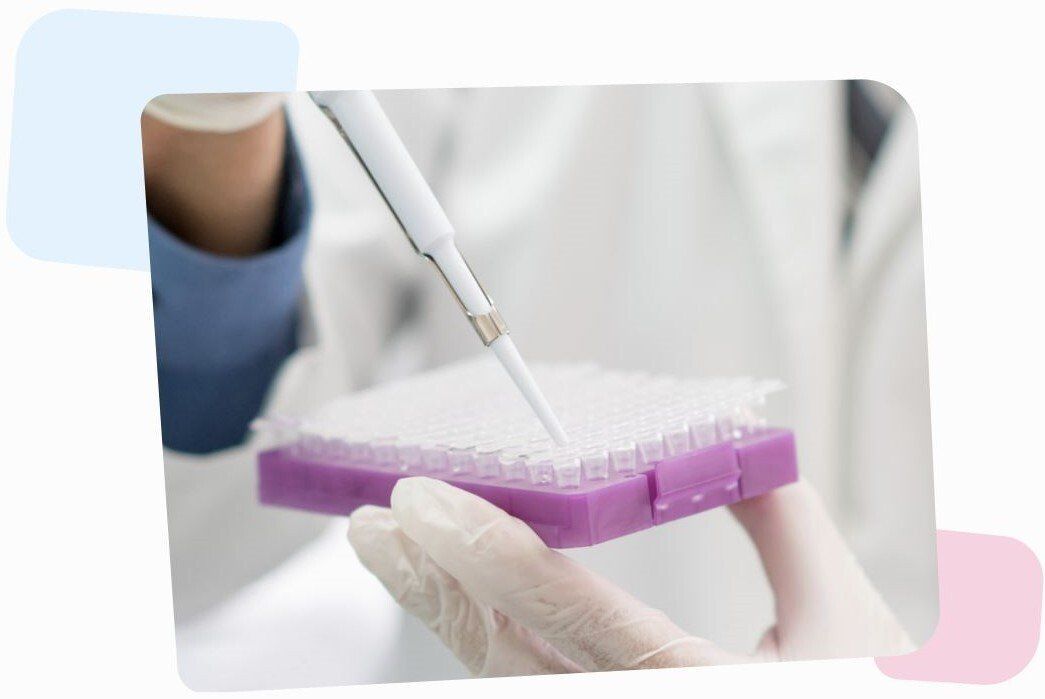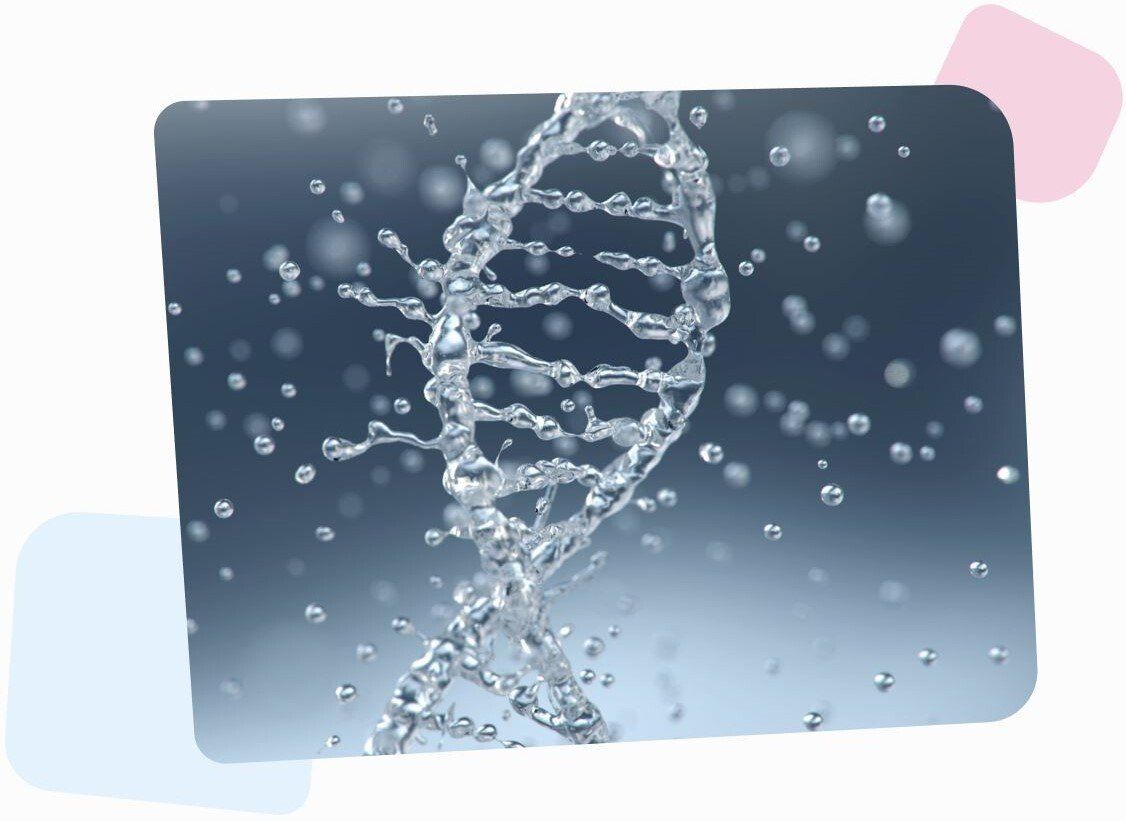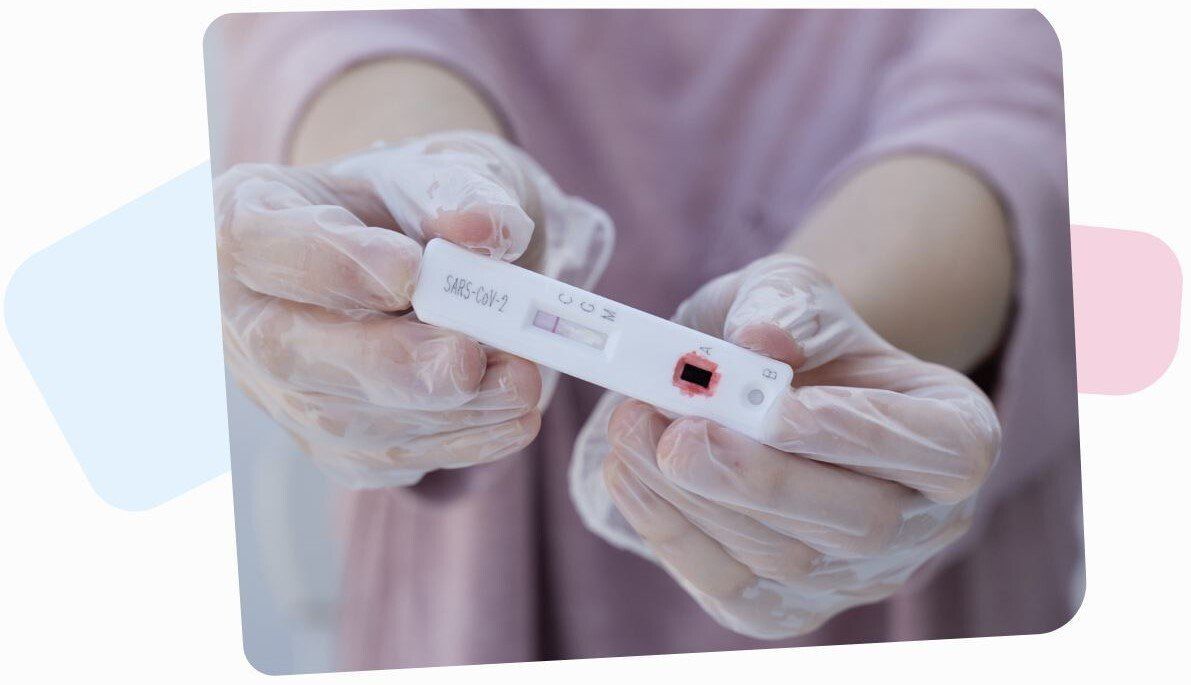Egg Donor Screening Process
Our egg donor screening process is aligned with strict quality requirements and operational procedures. We examine donors according to the international ART associations guidelines: EU-Tissue Directive 2004/23/CE, 2006/17/EC.
How Are Potential Egg Donors Screened?
Lab and diagnostics tests:
- Blood type, Rh factor
- HIV-1 Ag p24 and summary antibodies, including group O and HIV-2 (ECLIA)
- Treponema pallidum, summary antibodies
- PCR HBV / HCV total antibodies (Real-time)
- Hepatitis B virus (HB cor Ag, IgM antibodies)
- Hepatitis B virus HBsAg (qualitative diagnosis)
- T-lymphotropic virus I, II IgG + IgM antibodies
- PCR, Chlamydia trachomatis (genital swab)
- PCR Neisseria gonorrhoeae (genital swab)
- CMV, IgM, G, PCR
- Complete blood count
- Coagulogram
- AMH, MIS
- LH, FSH, Prolactin
- Estradiol (E2)
- Vaginal smear
- PAP-test
- Psychological counseling
- Breast ultrasound
Extended Genetic Screening and Research
Expanded genetic screening of oocyte donors is increasingly becoming a worldwide standard practice. Yet, programs providing services of oocyte donation still differ in the number and type of inherited diseases tested, the types of reports produced and the way the reports are being communicated with the clinics, the physicians involved, the donors and the potential recipients. In the absence of a standardized protocol, critically important genetic information may not be delivered to those directly involved, including children who have or will be born following the use of oocytes from an affected donor, as well as the donor’s own children.
Attempting to improve the health outcomes of its genetically related donors and offspring, the Medicover Ukraine oocyte donation program has recently launched a new genetic program in collaboration with the Medicover genetic institute in Cyprus.
All oocyte donors are screened for a panel of 500 recessively inherited genes by Next Generation Sequencing as well as other techniques. The panel includes 32 X-linked diseases and all 113 conditions recommended by the American College of Medical Genetics (ACMG). Donors are automatically disqualified from donation in case they are carriers of mutations in one of the 32-X-linked diseases as well as mutation in the CFTR or SMN1 genes. Detailed reports indicating the carrier status of the donors are provided to the referring clinics. A similar screening is conducted for the male partners of the recipient couples and complete matching reports are provided.
In addition, if necessary, the donor can undergo molecular karyotyping (CMA) following which a full report concerning all genetic variations found is provided.
Medicover Ukraine will continue applying the most updated practices concerning the genetic testing of its donors to ensure the wellbeing of all individuals involved in its oocyte donation program.
GENES TESTED VIA NGS
GENES TESTED VIA OTHER TECHNIQUES
50 TESTINGS FOR DONOR'S OOCYTES
Covid-19 Testing
Covid-19 testing is mandatory for all egg donors listed in our database. The test is carried out twice during a stimulation cycle – within 30 days before oocytes retrieval and on the day of oocytes retrieval. Covid-19 testing is performed with a rapid Antigen Test for SARS-CoV-2. We also have the possibility to perform PCR testing upon request.
Egg Donor Process Step-by-Step
The Egg Donor Process Step-by-Step is your comprehensive guide to becoming an egg donor for IVF. This carefully orchestrated journey begins with an initial consultation. Upon medical approval, you'll have the opportunity to choose between open and anonymous donor status. Ensuring both your health and genetic suitability, our thorough assessments provide the foundation for your contribution.
1. Initial Consultation
At the very beginning, the potential egg donor visits the medical centre for the initial consultation. The initial phase of medical screening often starts with a fertility assessment, confirming the donor's ovarian capacity to produce eggs. This involves a comprehensive evaluation, including physical and pelvic examinations, ultrasounds, and a blood draw for AMH to assess hormone levels. Lastly, the donor is referred to a psychologist and doctor to talk about the whole egg donation process.
2. Open vs. Anonymous status
After medical approval, the donor receives further details that also include the possibility for her to choose between open and anonymous egg donor status. Open status implies that the recipient of the donated egg and the donor are aware of each other's identity, while an anonymous status ensures full anonymity of the donor. If all involved parties agree, the medical centre and donor sign a contract.
3. Family Medical History
Afterwards, our coordinators check the medical history of the donor’s family going back to three generations. The purpose of this analysis is to ensure that there have been no serious genetic diseases in the past, and that there thus is a reduced risk related to the transfer of hereditary diseases from the donor to the baby.
4. Donor Assessment
Our doctors carry out a thorough examination to confirm a suitable health condition of the donor, absence of any abnormalities and hereditary diseases. This includes a check for infectious diseases such as AIDS, COVID-19, Chlamydia, and hepatitis B and C. Blood and urine samples are collected and tested for infectious and genetically recessive diseases. Besides, a chromosome analysis is performed. The results go through the assessment and approval of our geneticist. Also, the donor does a personality test.





